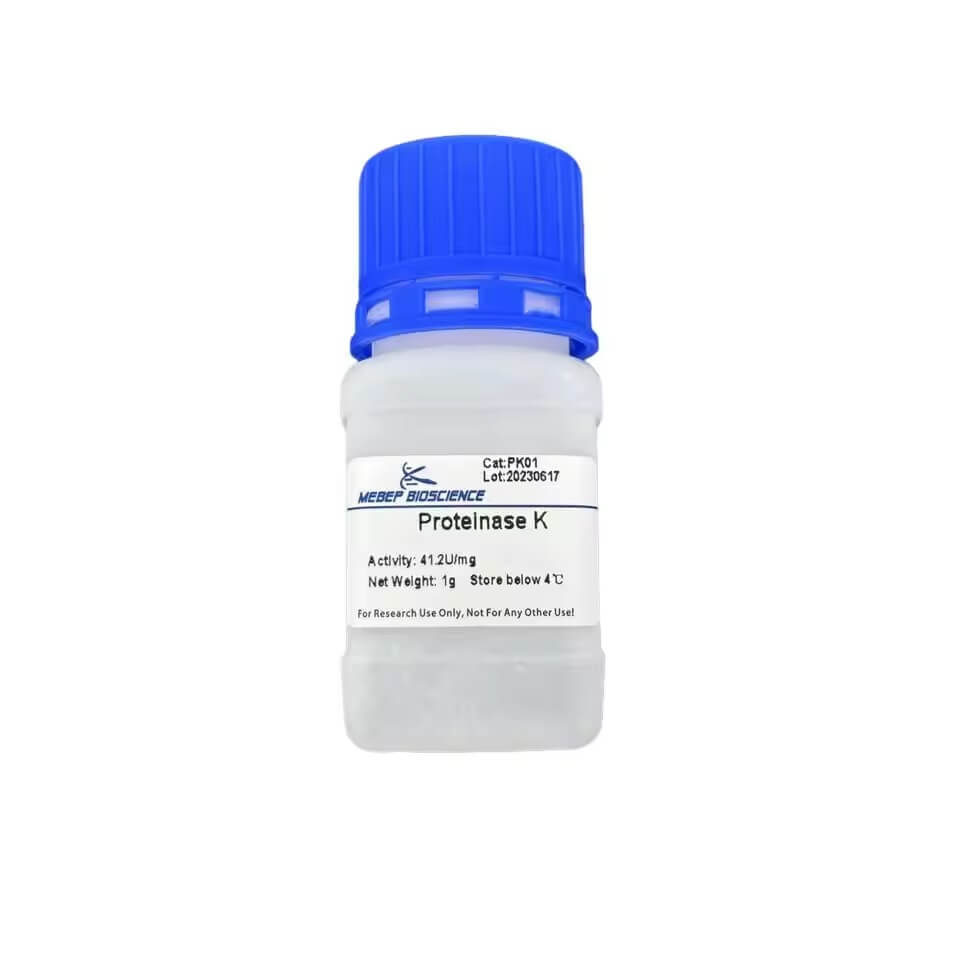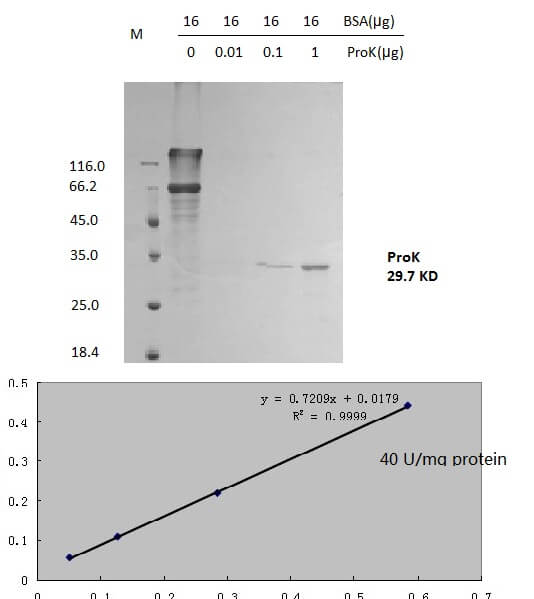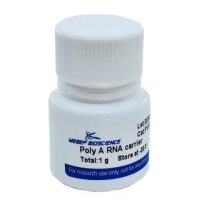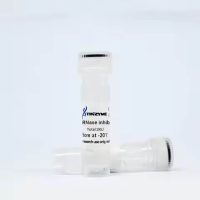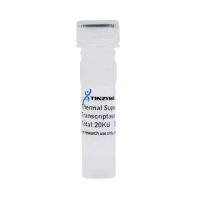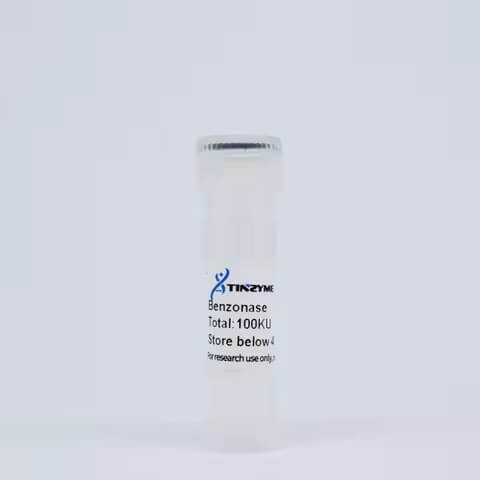
Benzonase Lyophilized Powder
2024-11-13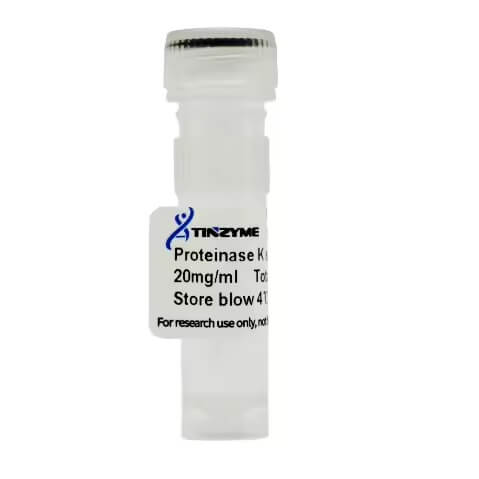
Proteinase K solution
2024-11-13Proteinase K Powder
Product Number: PK01 Lyophilized powder Molecular bio grade
Shipping and Storage
Shipping under room temperature and Store at 4 to -20°C recommended.
Description
Proteinase K is a broad-spectrum serine protease originally isolated from fungus Engyodontium album. Proteinase K is commonly used in molecular biological and biopharmaceutical applications to remove protein contamination from preparations of highly native undamaged nucleic acid because it rapidly and effectively inactive nuclease that might degrade the DNA or RNA even in the presence of denaturing reagents. MEBEP recombinant proteinase K is a mutant to the native protease that result in improved specific activity, higher yield and wider range of pH/temperature with optimal activity. The large scale recombinant preparation has advantages in lot-to-lot consistency, superior purity and cost-efficiency. DNA-free nature of recombinant Proteinase K made it well-suited in isolating DNA and RNA templates. Recombinant proteinase K is widely used for general digestion of proteins and Chemo-enzymatic peptide synthesis in molecular biology, molecular diagnostic and biopharmaceutical applications. Proteinase K is one of important enzymes in various industries like leather, cosmetics, food and feed etc.
| EC | 3.4.21.64 |
| CAS | 39450-01-6 |
| Form | Lyophilized White Powder. |
| Molecular Weight | 29,300 D |
| Source | Mutated gene from Tritirachium limber, Expressed in recombinant yeast. |
| Specific Activity | ≥34U/mg dry weights |
| Unit Definitions | One unit is defined as the amount of enzyme that will liberate 1 μmol of tyrosine per minute at 37°C, pH7.5. |
| Package size | 100mg, 1g, 5g, 10g, 100g, 1000g or customized. |
| Expiration | Three years if kept below 4°C. |
| Dilution Buffer | 20 mM Tris-Cl (pH 7.4), 1 mM CaCl2, 2% glycerol. |
| Storage Buffer | 20 mM Tris-Cl (pH 7.4), 1 mM CaCl2, 50% glycerol. |
Preparation
- The Molecular Biology Grade lyophilized powder is NOT sterile.
- Stock solution can be prepared as 40-80 mg/ml in dilution buffer [20mM Tris-HCl (pH 7.4) , 1 mM CaCl2] or [20mM Tris-HCl (pH 7.4) , 1 mM CaCl2, 2% Glycerol], sterilized using a 0.22 μm filter and supplied at final concentration of 20-40mg/ml in 50% sterilized Glycerol. Store in aliquots at wide temperature range from 24°C to -80°C.
- PES or PVDF membranes with low protein binding are recommended in sterile filtration.
Quality Control
- DNase Activity: none detectable enzyme activity with λ DNA after 6 hours incubation at 37°C.
- RNase Activity: none detectable of ribonuclease activity after 16 hours incubation at 25°C.
- Protein Purity: > 95% (Native-PAGE and SDS-PAGE assay).
